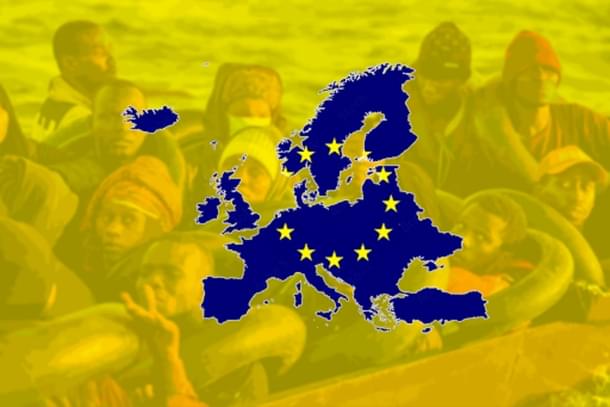World
Europe Is Shutting Its Door To Immigration
Ujjwal Shrotryia
Dec 22, 2023, 05:48 PM | Updated 06:20 PM IST
Save & read from anywhere!
Bookmark stories for easy access on any device or the Swarajya app.


The European Union and its member states on Wednesday (20 December) reached an agreement to pass new sets of laws that limit immigration.
The new set of laws restricts the number of migrants that can enter Europe, enables quicker vetting of asylum seekers, mandates the formation of border deportation centers for holding illegal immigrants, and allows for the faster deportation of immigrants whose asylum requests have been denied.
Following these broader EU measures, France has taken its own steps in the same direction. Just hours after the EU agreement on 20 December, the French Parliament passed a new immigration law.
The new law intends to strengthen rules of immigration and restrict asylum seekers coming to France, making it harder to get citizenship.
Similarly, former EU-member Britain is also working on introducing an anti-illegal immigration law — 'Stop The Boats' — to prevent migrants from using boats to cross the English Channel and enter Britain.
In fact, the Rishi Sunak-led conservative government went to the extent of passing emergency legislation, overturning a Supreme Court decision, and declaring Rwanda as a safe country for deporting illegal migrants who have entered Britain.
As these new legislative measures reflect a tightening stance on immigration, they also mirror a broader shift in societal attitudes across Europe. The legislative changes are both a response to the escalating anti-migrant sentiment that has been influencing the political landscape.
Following the aftermath of a migration wave during the period of 2015-16, a strong anti-migrant sentiment is prevailing across Europe. This period saw an unprecedented influx of refugees fleeing conflict zones in the Middle East and North Africa, notably Syria, leading to a substantial demographic shift within many European nations.
Many have developed strong feelings of resentment and opposition towards migrants, perceiving them as a threat to their cultural identity, economic stability, and social norms.
Moreover, the ghettoisation of migrants has also heightened the sense of division.
With the strong support shown by migrants for the barbaric actions of 7 October by Hamas, and the rising anti-semitism, has further given fuel to this feeling of the masses.
London Metropolitan Police says it has seen a 13-fold increase in anti-semitic offenses following Hamas terrorists act in October. One of the reasons for the UK's Home Secretary Suella Braverman's resignation was also the UK government's inability to curb anti-semitism protests held on the streets of London.
This has led the European electorate to give an opportunity to right-wing conservative leaders, who oppose rampant immigration and have made this a cornerstone of their pitch in their respective countries.
The recent win of Geert Wilders in the Dutch elections is a case in point. Earlier (in October 2022), Giorgia Meloni won the elections in Italy, riding the same wave of anti-migration. Viktor Orban's victory in the Hungarian elections, in 2022, is another example.
The prevailing sentiments have forced the hands of Europe's remaining left-leaning governments to change tactics, and it seems that most European governments are inclined to shut their doors to immigrants, whether legal or illegal, and find ways to get rid of the ones that have already arrived, and make them somebody's else burden.
Let's hope that Europe, with its history of ethnic and racial conflict, does not swing too far into xenophobia.
Also Read: Britain Is Jumping Through The Hoops To Evict Illegal Immigrants
Staff Writer at Swarajya. Writes on Indian Military and Defence.




